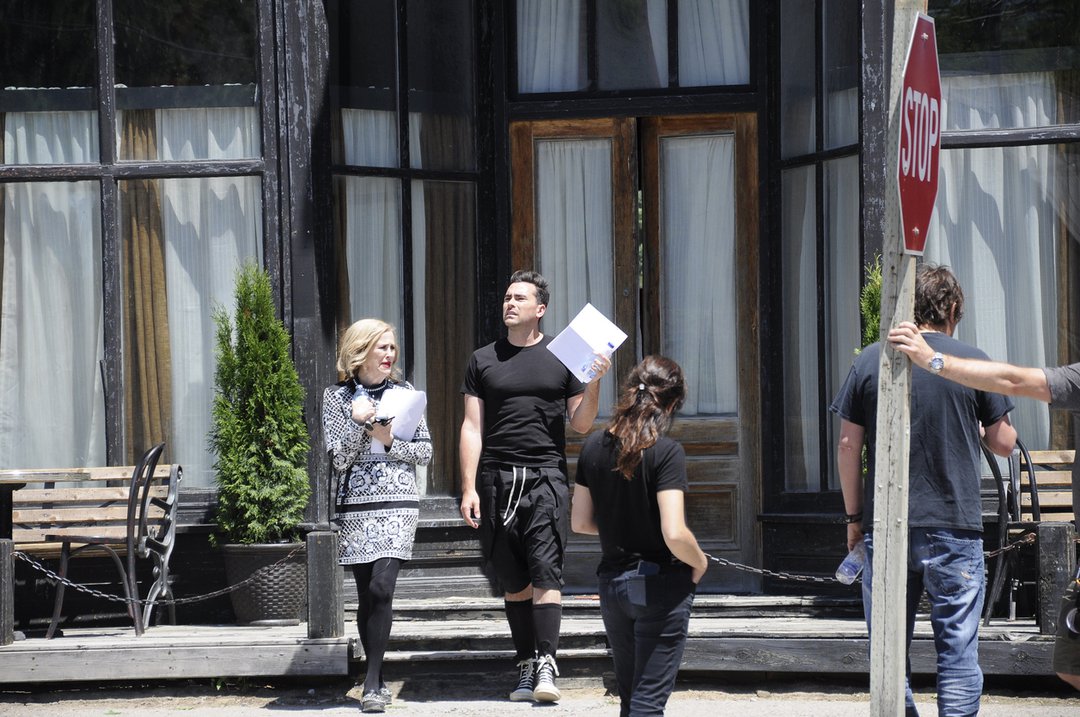
Have you binge-watched “Schitt’s Creek” yet? It’s great comic relief and, in fact, financially educational. Long story short; a once-rich family, the Roses, fall from their lavish lifestyle into a precarious financial situation; they are totally broke. Going from pampered to poor almost overnight forces the Roses to go back to the basics. The silver lining is that the basics are kind of good for them.
“The basics” are also the current reality of many Canadian families, awash with debt and anxious about their financial futures. As COVID-19 financial aid ends soon, it’s high time Canadians prepare for what’s next, as the characters on “Schitt’s Creek” had to do.
Licensed insolvency trustees Bromwich+Smith recently shared some teachable financial take-aways from the show, and I’ve added a few of my own.

File your taxes … there’s really nothing to be scared of
Johnny (Eugene Levy), the “successful” father of the family, had left his company’s tax preparation and filing up to his business partner, who neglected to pay, which is the reason the family ends up broke and in … well, the show’s title.
Don’t let this be you.
Whatever you do for work, file your taxes on time. Otherwise you could be slapped with late fees and ongoing penalties. Chances are that you’re one of the lucky majority of Canadians who doesn’t owe anything, but if you’re not sure where to get started, seek help from an expert. A tax professional can assist you in wading through the filing process, even if you’re really behind, and can offer suggestions for tax relief by identifying credits and benefits you may be eligible for.
Face your reality, fast
“It’s human nature to procrastinate when it comes to financial concerns like debt. We tend to wait until the collectors are calling, and then we take action, but under duress. If we’re more proactive, honest and playful in our approach to our finances, however, we can often uncover better solutions, earlier,” says Taz Rajan, community engagement partner at Bromwich+Smith.
Whether you’re starting from zero like the Rose family, or you’re not doing too badly, it’s important to confront your reality. Take stock of what you own and owe money on, what income and expenses you have, the insurance coverage you have and be honest with yourself about your financial skills. When you know where you’re at, you can make a plan to move forward.
Have an emergency fund.
The Rose family did get back on track, but it took time. That time taught son David (Dan Levy), how to empower himself through savings. This once-spoiled lad used the income from his job to set aside money, and you can do the same. Stash some cash into an emergency fund for a rainy day. Even small regular contributions to a savings account you don’t touch can come in handy if unexpected expenses come your way. One of my favourite savings techniques I teach my students is daily contributions into a non-tappable savings account (basically set it up so that your debit card can’t get money from this account); even if it’s small. The goal is to get this fund up to three to six months’ worth of essential expenses. It takes time to build this buffer money up, so patience is key.
Forgive yourself
Life is full of uncertainty and the pandemic has been a firm reminder of this. But rather than feeling massive shame about your debt or general financial circumstances, as the Roses seemed to constantly feel especially at first, it’s time to forgive yourself. Debt and your net worth doesn’t define you as a person. Focus on what you plan to do about it.
Don’t DIY. Get help from a pro
Johnny and wife Moira (Catherine O’Hara) are prideful people, but when they found themselves in trouble they reached out to the jack of all trades, Ray, as a financial adviser.
Canadians can do the same. There are professionals that can help you no matter where you are in your financial journey — money coaches, financial planners, licensed insolvency trustees and investment advisers.
Talk to loved ones about money
Money has been a taboo topic for way too long, and debt carries an aggressive stigma, which is why many people keep their money problems to themselves. Yet sharing your financial journey with people who care about you will help you get through the rough patches. It’s precisely how the Roses overcame their financial hardships; by leaning on each other.
“The great news is that attitudes around debt and money problems have shifted during the pandemic to be more inclusive and understanding.” Rajan goes on to say. “There’s a great sense that Canadians and their families are not alone and that it’s OK to talk about our finances more openly.”
If you need support from outside your current circle of family or friends, check out free qualified online financial education communities.
Embrace the new you.
The Rose family is not the same after years in Schitt’s Creek. They become better people in relationships, business and as community members. Not all of these positive changes are tied back to financial empowerment, but I’d venture to say most are related. Becoming financially empowered will change you. The benefits of less stress and better decision-making will give you better options for your future. You won’t be the same person and that is OK.
Comments are closed.
